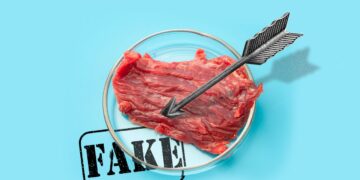[ad_1]
OK, you’ve lost me. What do you mean by “bring in a molecule”?
It literally just means allowing a molecule into a cell. And if that molecule is a gene editor, then it can edit genes. So we’re really at the early days of trying to figure out, for all the microbes in the human gut, how do they allow molecules to get in? And the answer is, it’s different for different bugs. So in the future I think it’ll come down to understanding which bugs need to be manipulated and how they are best able to take up these editing molecules. But ideally there would be a way to do it orally—taking a pill, for example.
What’s the alternative? I mean, you don’t want to do surgery or inject people in the stomach.
Well, you’ve probably heard of fecal transplants. But I think most people would prefer another option.
Something that starts at the other end.
Right. So having a way to deliver these Crispr molecules orally would be great. But it’s going to take some real work to figure out how to do that. And, of course, ultimately we also want to understand the fundamental biology, how these microbes are connected to diseases that are more complex. For instance, there’s evidence that neurodegenerative diseases like Alzheimer’s are actually very closely associated with the microbiome in ways that still have to be discovered. We actually have a separately funded program that works on neurodegenerative diseases specifically. That program focuses on Huntington’s disease, not Alzheimer’s, but imagine if you could use the microbiome-targeting form of Crispr to protect people that haven’t even developed Huntington’s or Alzheimer’s yet. That would be amazing.
Not to be alarmist, but my understanding is that microbiomes are like ecosystems: There are helpful species and harmful ones that exist in a balance. If you genetically edit one species, don’t you risk throwing that delicate balance out of whack?
Well, we already use things like antibiotics, which kill off multiple different kinds of bugs in the microbiome—including the one that’s causing you to be sick, but others as well—and there are clearly consequences of that. Crispr is safer, because the precision allows you to target not all the bugs at once but one particular type. And not only that, but one particular gene in one particular bug.
True. But microbes also do something that people don’t, which is share genes among themselves. How do you know that a gene you put in one microbe won’t end up causing problems in another microbe?
Well, that’s why we want to start by testing all these things in the lab and seeing what happens.
OK. But realistically, we haven’t been able to culture most of the stuff in our gut, right? Which means that even after all the lab work, there are still going to be some unknown unknowns. Is the idea that at some point you’ll just have to say: From what we can see, it seems safe?
When developing a new therapy of any type, lab models can only take you part of the way. With microbiomes, what we’re able to do in the lab is getting more sophisticated. By growing microbes in their native communities and in conditions more comparable to their native environment, the behavior is more similar to what would be seen in a human system, but it can never be exactly the same. In some cases, we already know what the healthy state looks like—one person’s microbiome produces an inflammatory compound, while another person’s doesn’t. Having that kind of information plus our experimental work in increasingly accurate models of the gut microbiome helps us feel confident about moving forward.
Let’s switch gears. There’s another part to this project that’s about climate change. Specifically, people found that feeding cows a particular kind of seaweed reduces the amount of “methane burps” they make by 80 percent. Of course, it’s not practical to harvest and transport that much seaweed. So the idea is to modify a calf’s microbiome to have the same effect, is that right?
Yes, and ideally in a one-and-done kind of treatment. Like, if you could manipulate the microbiome in the calf rumen at birth in a way that could be maintained, that would lead to dramatically reduced methane emissions. Which would have an enormous effect. I was actually shocked to learn that about a third of global methane emissions every year comes from agriculture, primarily from cattle.
[ad_2]
Source link







